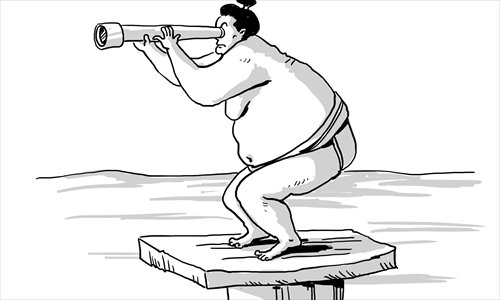Japan looks to Central Asia for secure economic counterbalance

With the dispute between China and Japan over the Diaoyu Islands still roiling the East China Sea, Japan has intensified its activities in Central Asia.
Recently, Japan held the fourth ministerial meeting of the "Central Asia plus Japan Dialogue" in Tokyo. The event was not ignored by the five Central Asian republics and ministers of foreign affairs were there in full force.
The participants expressed their desire to develop the Japanese-Central Asian relationship and assured that they would in every possible way strengthen international cooperation.
In the long term, they came to an agreement that Japan would allocate $700 million for the implementation of joint projects. The discussion of regional security issues and joint assistance to Afghanistan was also an important part of the multilateral dialogue.
Japan, despite its huge public debt and the threat of economic recession, remains quite attractive to the former post-Soviet states.
In Central Asia, Japan is associated with high-speed trains and highways, high-quality cars and electronics, and advanced telecommunications and robotics technology.
Despite economic booms elsewhere in East Asia, Japan is still perceived as a model of a modernized society and developed economy.
Kazakhstan is also modernizing, adopting new technological ventures in which the best practices of the US, Germany, France, South Korea and other developed countries are being adopted. The technological experiences of Japan are also of critical importance.
At the last meeting of the "Central Asia plus Japan Dialogue" in Tokyo, Kazakh Foreign Minister Erlan Idrissov said that Japan has enormous economic and intellectual potential, which allows it to make a practical contribution to the strengthening of regional integration. Participants in the meeting considered ways of tackling regional problems in such areas as rational use and management of water and energy resources, development of transit-transport potential of the region and the infiltration of new technologies.
Political events also played a role. In autumn 2010, there was an incident with the seizure of a Chinese fishing boat by Japanese guards in disputed waters, which sparked a subsequent partial ban on rare earth exports to Japan.
Though China didn't officially link these events, Japan began to show its concern about its economic vulnerabilities.
Currently, because of worsening Sino-Japanese territorial disputes, Japan's anxiety has intensified, because it gets more than 90 percent of its rare earths from China.
China has no monopoly over rare earths, but has come to dominate the production chain through its low-cost processing facilities.
As a result, in order to reduce its dependency, Japan has turned its attention to Central Asia.
Japan has become actively involved in building a rare earth processing factory in Kazakhstan's Stepnogorsk, with the aim of exporting rare earths to Japan by next January.
Kazakhstan doesn't see stronger economic relations with Japan as an alternative to good neighbor relations with China.
It is eager to help find a solution to this breach of harmonious relations, and will work through international organizations to offer any help it can to find political solutions to the conflict between the two Asian giants.
The author is head of the Department of Foreign Policy Studies at the Kazakhstan Institute for Strategic Studies. opinion@globaltimes.com.cn